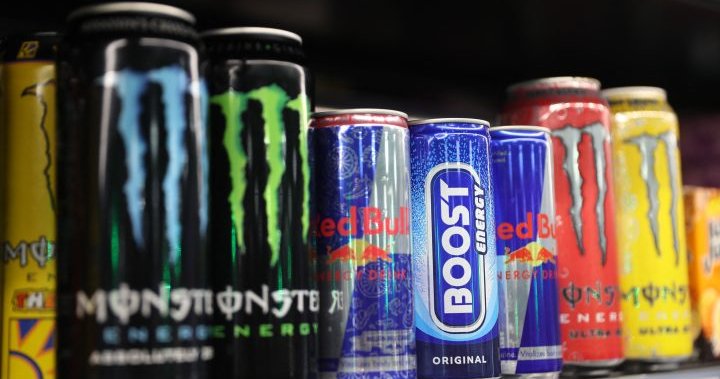As Canada experiences recalls of energy drinks due to high levels of caffeine, concerns are being raised by pediatricians and health experts about the accessibility of these products and their potential impact on youth. Energy drinks can be easily purchased from corner stores and other retailers, despite some labels advising against consumption for those under 18. Unlike alcohol or cannabis, energy drinks are not controlled in the same way. Health experts warn that the quick energy boost provided by these drinks can lead to health issues.
Dr. Anna Banerji, an associate professor of pediatrics at the University of Toronto and the School of Public Health, explains that the caffeine content in energy drinks is significant and can be harmful to both children and teenagers. She likens it to consuming multiple cups of coffee, resulting in temporary energy and stimulation that is not sustainable. The withdrawal effects from caffeine, such as sleep problems, irritability, nervousness, and anxiety, can also be problematic.
Energy drinks can cause side effects such as headaches, nausea, rapid or irregular heartbeat, and insomnia, according to HealthLink BC. Banerji points out that these beverages often contain high amounts of sugar in addition to caffeine, offering little nutritional value and empty calories. The caffeine content of energy drinks varies depending on the brand, with some containing 300 mg or more.
In the United States, the Food and Drug Administration advises that adults can consume up to 400 mg of caffeine per day. However, there is no recommended limit for those under 18, although the American Academy of Pediatrics advises against caffeine consumption for this age group. Health Canada recommends children and adolescents consume no more than 2.5 mg of caffeine per kilogram of body weight per day. For example, an average 16-year-old male weighing 60 kilograms (132 lbs) should consume no more than about 150 mg of caffeine daily.
Dr. Jean-Philippe Chaput, a senior scientist with the Healthy Active Living and Obesity research group at the Children’s Hospital of Eastern Ontario (CHEO), highlights the importance of youth focusing on drinking healthy beverages like water, rather than relying on caffeine and energy drinks to stay alert throughout the day. He suggests a combination of education and new policies, involving parents, schools, and healthcare providers discussing proper sleep habits and discouraging energy drink consumption.
Chaput further suggests that policies could be implemented to restrict the amount of caffeine in these beverages. However, Banerji notes that regulating energy drinks may present challenges, as they are not the same as items like tobacco, which can be restricted due to carcinogens. She also expresses concern about how energy drinks are marketed, which she believes is targeted towards youth rather than adults, with their loud logos and brightly colored packaging.
Marvin Ryder, an associate professor of marketing at McMaster University’s DeGroote School of Business, points out that social media has become a powerful tool for energy drink makers to reach consumers, even without direct promotions on these platforms. Peer-to-peer communication, such as seeing a close friend or influencer consume an energy drink on social media, can have a significant impact on younger individuals. Ryder believes that without potential government intervention, little is likely to change. He suggests options such as making warning labels more prominent, removing colors and logos, or changing how these products are sold.
In recent recalls, Canada has recalled several energy drink brands, including Logan Paul and KSI’s Prime Energy, and the well-known 5 Hour Energy, due to concerns about excessive caffeine levels and labeling issues. Ryder emphasizes the importance of enforcing such rules and taking action to remove any products that violate regulations from store shelves.

